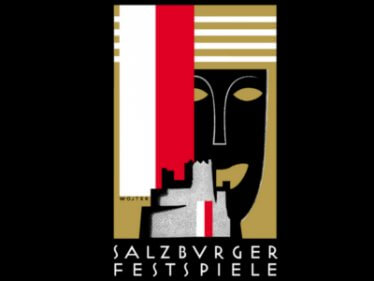Salzburg Festival - Schedule, Program & Tickets
Salzburg Festival
During the weeks in which we have been preparing the Salzburg Festival’s 2021 programme, the coronavirus pandemic has again tightened its grip on the world. We are therefore all the more grateful to be able to look back on last summer. It felt like the most wonderful gift for our centenary that we could resoundingly demonstrate the power of the arts exactly 100 years after our founding, and thus reinvigorate the Festival’s founding idea in a truly remarkable way.
Who could have imagined just a few months ago that performances of the founding play of the Salzburg Festival, Jedermann, of Elektra, Così fan tutte or Beethoven’s Ninth Symphony would be thinkable in these times of crisis? Or that it would again be possible to bring people together in celebration of the arts? From Salzburg, we sent a powerful signal to the world. This beacon was lit thanks to our wonderful artists, our staff, and you — our valued audience. Thank you for your enthusiasm, and also for maintaining the discipline that is so necessary throughout this pandemic.
We aim to send another similarly powerful signal in 2021. Our plan next summer is to present important work that could not be realized in 2020. These opera, theatre and concert performances will extend the Festival’s centennial celebrations until autumn 2021.
Under the heading of ‘Pax — Peace’, our Ouverture spirituelle will tie in to the founding idea of the Festival as a project devoted to peace through the spirit of the arts. Two completely opposed ways of perceiving the world are a central preoccupation of our opera and theatre productions: radical individualism versus the humanistic idea of a society based on solidarity, as invoked by Luigi Nono in his work Intolleranza 1960. Nobody could have guessed the significance this conflict would have today and how painfully the loss of togetherness would be felt.
According to the cultural theorist Aleida Assmann, ‘cults and the act of performing have always had a community-building aspect to them’. The Salzburg Festival ‘boosts a cult for the arts, revitalizes European cultural memory, sharpens reflection on essential questions of human existence, and places the aesthetic experience for the senses at the forefront.’
For the centenary, we drew up a memorandum together with the Festival’s supervisory board. This posed certain fundamental questions that we also wish to share with you. What makes a festival? What is its mission? What can art do?
Let us hope that we can experience next summer’s events free from the shadow of the pandemic and inaugurate the Festival’s next century with restored confidence.
Who could have imagined just a few months ago that performances of the founding play of the Salzburg Festival, Jedermann, of Elektra, Così fan tutte or Beethoven’s Ninth Symphony would be thinkable in these times of crisis? Or that it would again be possible to bring people together in celebration of the arts? From Salzburg, we sent a powerful signal to the world. This beacon was lit thanks to our wonderful artists, our staff, and you — our valued audience. Thank you for your enthusiasm, and also for maintaining the discipline that is so necessary throughout this pandemic.
We aim to send another similarly powerful signal in 2021. Our plan next summer is to present important work that could not be realized in 2020. These opera, theatre and concert performances will extend the Festival’s centennial celebrations until autumn 2021.
Under the heading of ‘Pax — Peace’, our Ouverture spirituelle will tie in to the founding idea of the Festival as a project devoted to peace through the spirit of the arts. Two completely opposed ways of perceiving the world are a central preoccupation of our opera and theatre productions: radical individualism versus the humanistic idea of a society based on solidarity, as invoked by Luigi Nono in his work Intolleranza 1960. Nobody could have guessed the significance this conflict would have today and how painfully the loss of togetherness would be felt.
According to the cultural theorist Aleida Assmann, ‘cults and the act of performing have always had a community-building aspect to them’. The Salzburg Festival ‘boosts a cult for the arts, revitalizes European cultural memory, sharpens reflection on essential questions of human existence, and places the aesthetic experience for the senses at the forefront.’
For the centenary, we drew up a memorandum together with the Festival’s supervisory board. This posed certain fundamental questions that we also wish to share with you. What makes a festival? What is its mission? What can art do?
Let us hope that we can experience next summer’s events free from the shadow of the pandemic and inaugurate the Festival’s next century with restored confidence.
There are no products matching the selection.






